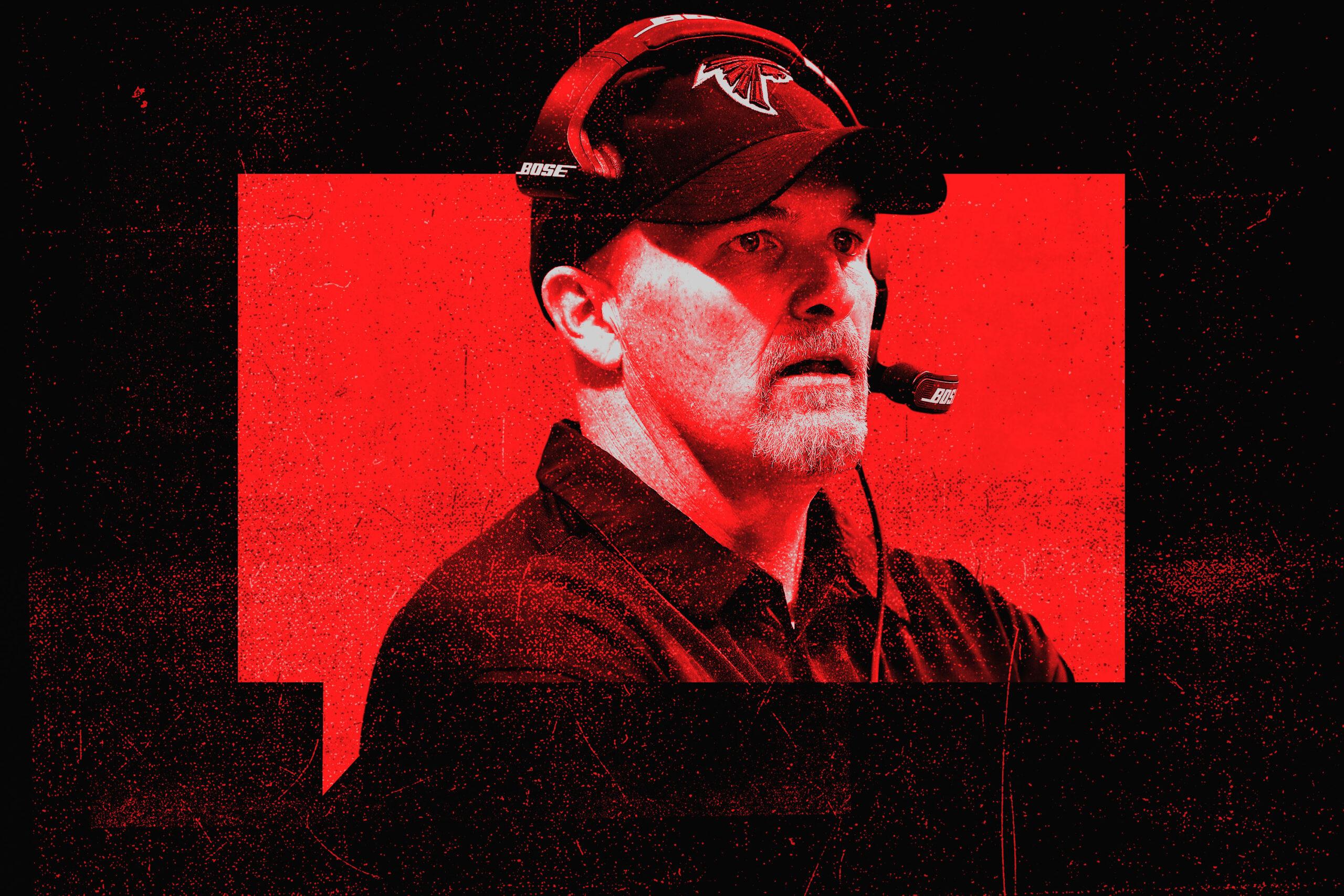
It’s that time of year, when some NFL teams have started looking toward next season. As each club is eliminated, The Ringer will examine what went right, what went wrong, and where the franchise could go from here. Up next is the Atlanta Falcons, who were eliminated from postseason contention despite a dominating win over the Arizona Cardinals on Sunday.
What Went Right
For stretches this season, Atlanta’s offense under coordinator Steve Sarkisian was almost as good as its 2016 offense under Kyle Shanahan. Julio Jones leads the league in receiving yards (1,511) and is just the fifth receiver in NFL history with three seasons to have more than 1,500 receiving yards. He also has learned how to get into the end zone, with six touchdowns in his last seven games after getting zero scores in his first seven. Fellow Alabama alum Calvin Ridley has looked like a more than capable sidekick in his first season, and the duo will be one of the best receiving combos in the NFL when both are healthy. Tight end Austin Hooper put up career highs in receptions, receiving yards, and touchdowns. Best of all, the Patriots are now the ones blowing games they were all but guaranteed to win. Take that, Brady.
What Went Wrong
A great deal even by the Falcons’ standards. In Week 1, stud linebacker Deion Jones and starting safety Keanu Neal landed on IR with a foot injury and torn ACL, respectively. The next week, starting guard Andy Levitre landed on IR with a torn tricep. In Week 3, their other starting safety, Ricardo Allen, tore his Achilles and was lost for the season. Two weeks later, running back Devonta Freeman returned from a Week 1 knee injury but left the game with a groin injury and was placed on IR.
Atlanta never truly recovered from this stretch. The team started 1-4 (three of those losses by a touchdown or less), and by the time its offense was revving, the defense had bottomed out. Defense was a strength for the Falcons in 2017, but their performance in 2018 went off a cliff. Here are their defensive figures from 2017 compared to this year (through Week 14) in various categories.
Falcons Defense Collapse
Perhaps more concerning is that Atlanta’s offense under Sarkisian has nosedived in the last month after starting strong. After the Falcons averaged 28.5 points over their first eight games, they have averaged 21.3 points in their last six games, but that number drops to less than 18 excluding their evisceration of the lifeless Cardinals on Sunday. The offense is not humming like it was in the fall, and there is no one silver bullet: Sometimes it’s on the play-calling, sometimes it’s Matt Ryan not playing like a $100-million-guaranteed player, sometimes it’s because the receivers can’t catch, and sometimes it’s because the offensive line can’t block.
All of this adds up to the second consecutive disappointing year for the Falcons, who are still haunted by the February 2017 Super Bowl loss that will define this era of Atlanta and mess with the fan base for years (decades?) to come. Head coach Dan Quinn is not likely to be fired, but he’s certainly not guaranteed to return. Sarkisian has even less job security. Ryan has not looked like a player who can consistently elevate his teammates or close out games but he’s not going anywhere after signing an extension this offseason. It might be time for GM Thomas Dimitroff to flush the stink of the Quinn era.
Free Agency
Defensive tackle Grady Jarrett is one of the most underrated players in football. The former fifth-round pick is a free agent this offseason and a good candidate to be franchise-tagged if the Falcons can’t agree on an extension with him in February. That would take up a significant chunk of the roughly $26.5 million in cap space Spotrac projects the Falcons to have in 2019, and it may have trickle-down effects. The team may have to let running back Tevin Coleman leave in free agency because Devonta Freeman is already the third-highest-paid running back by average salary and quarterback Matt Ryan is the second-highest-paid player in the league after Aaron Rodgers (teams with three big backfield contracts don’t fare well).
Guards Andy Levitre, Ben Garland, and Zane Beadles are all set for free agency. The Falcons may remake the interior of their line opposite center Alex Mack, perhaps targeting veterans Mike Iupati or Rodger Saffold.
Draft Targets
The Falcons are currently on pace for a top-10 pick, which they haven’t had since 2015 when they took pass rusher Vic Beasley eighth overall. Beasley led the league in sacks in 2016 with 15.5, but he has just 10 combined in the two seasons since, and the Falcons may not retain him when his contract is up after next season. Atlanta needs to improve on the 27 sacks they have through 14 weeks (which incidentally ranks 27th in the league). The Falcons could target Clemson’s Clelin Ferrell or Mississippi State’s Montez Sweat with their first pick if they want an edge rusher opposite their 2017 first-round pick out of UCLA, Takkarist McKinley.
If they want a clogger in the middle alongside Jarrett (a spot they have struggled to fill—Jonathan Babineaux, Dontari Poe, and Jack Crawford have occupied the role each of the last three seasons), they could look at Michigan’s Rashan Gary, Alabama’s Quinnen Williams, or either of the Clemson duo of Christian Wilkins and Dexter Lawrence. Whoever it is, the Falcons need to get this pick right, because they have too much talent to be picking this high again in 2020.

